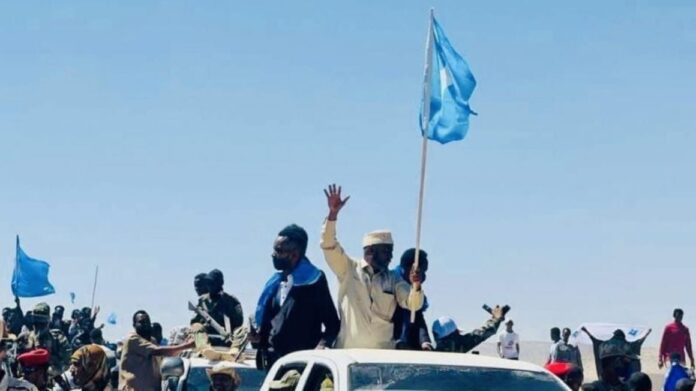Las Anod in Somalia’s Sool region has not always been in the news. Straddling the breakaway region of Somaliland and Puntland, it had only been subject to local political bickering between clans. But in December last year, violence broke out as protesters demanded a response to security concerns from officials in Somaliland.
Las Anod, 1,000km northeast of Mogadishu, is the capital of Sool region. When security forces shot and killed dozens, the calm broke. It worsened when crowds took up arms and demanded that Somaliland forces leave town.
Once the Somaliland law enforcers left, the protesters chanted their desire for a united Somalia, waving the Somalia flag. Some leaders consider it treasonous displaying the flag of Somalia in Somaliland territory.
Independence from Somalia
Somaliland declared its independence from Somalia in May 1991, four months after the fall of the late General Mohamed Siad Barre, who had ruled the country after a coup in 1969. It remains unrecognised internationally.
Las Anod though could create a new problem for Somaliland which has for decades unsuccessfully marketed itself as stable, peaceful, united and secure. Some clans have recently grown more agitated, causing a possible identity problem for Sool, Sanaag and Cayn regions, popularly known as SSC.
Pro-Somalia protests
As violence erupted in Las Anod, neighbouring Cayn town and villages like Taleh, Hudun and Kalshale reported pro-Somalia protests.
These regions are populated by the Dhulbahante clan, who have traditionally opposed the idea of an independent Somaliland fronted mostly by the Isak clan that mainly inhabit Hargeisa, Burao and Berbera.
Backgrounder
This week, protesters in Taleh, the second biggest urban centre in Sool, held demonstrations, waving the Somalia flag and rifles.
“Union with Somalia is a sacred mission,” they shouted from speeding vehicles.
Las Anod has had a history of opposition. In the 19th century, when the British showed interest in the north western regions of the Horn of Africa, the Isak clansmen in Berbera welcomed the them and signed the proposed ‘Colonial Protective Treaties’.
The Dhulbahante in Sool territories refused to sign and supported an anti-European drive by Muslim cleric Sayid Mohamed Abdulle Hassan aka Sayid Mohamed who organised the Darawish movement. The Isak stuck to the treaties with the British until Sayid Mohamed was defeated in early 1920s.
Taleh, where the castle of Sayid Mohamed was located was eventually bombed by possibly the first British airstrikes on African soil, marking the end of the anti-European struggle and a pause of pro-Somali union drive.
Politicians in Hargeisa are, however, resolutely united for the cessation of Somaliland.
Abdurahman Mohamed Abdullahi Irro, former chairman and candidate of Somaliland presidency for opposition Wadani Party, condemned the violent reaction by Somaliland security forces.
(Source: The East African)


